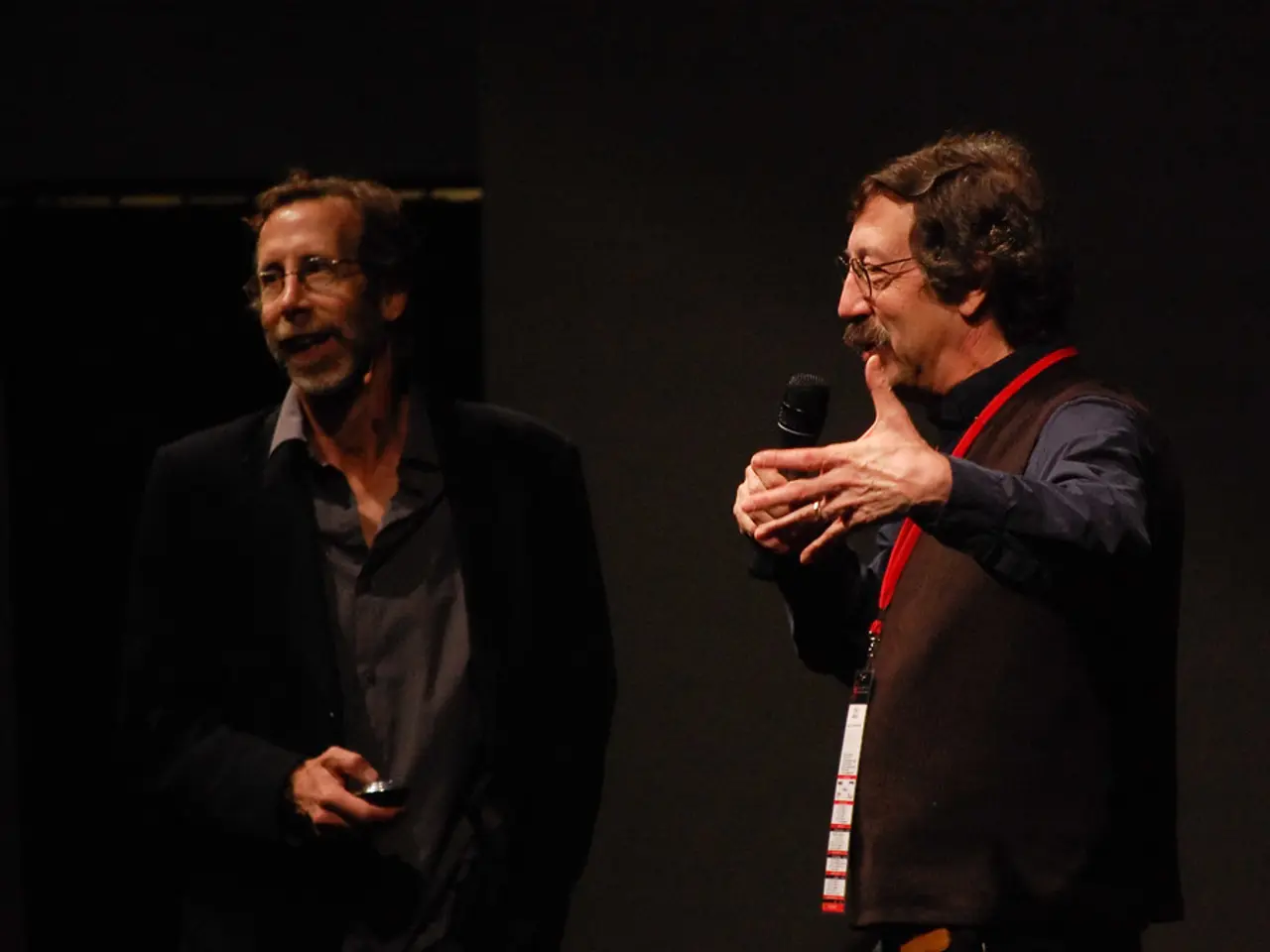Investigation | Examining the Meaning Behind Fadnavis' Offer to Uddhav, Shifting from Jest to Jolt
In a surprising turn of events, Maharashtra Chief Minister Devendra Fadnavis has extended an invitation to Uddhav Thackeray's Shiv Sena (UBT) to join the ruling side, potentially reshaping the political landscape in Maharashtra. Fadnavis's move aims to consolidate the BJP's position, marginalise the remaining opposition, and manage factionalism within the current coalition.
The BJP's decision to reach out to Uddhav Thackeray could be a calculated move to ensure a more stable ruling coalition, as the BJP and its allies currently hold a combined majority of 230 seats in the 288-seat Legislative Assembly. By potentially bringing UBT into the government, the BJP could marginalise the remaining opposition, especially the Congress and NCP, and secure a more cohesive ruling alliance.
Moreover, Fadnavis's overture to Uddhav may serve as a subtle message to Eknath Shinde, reminding him of the BJP's options and leveraging his faction's dependency on BJP support. This could be a tactic to keep Shinde in line or to negotiate better terms, such as seat-sharing in future elections.
The BJP's invitation could offer strategic advantages in certain constituencies, such as South Mumbai, where Uddhav's "non-combative Hindutva" might find more favour among voters than Shinde's faction. Uddhav still enjoys support among Muslims, Parsis, and others who appreciated his handling of issues like the COVID-19 pandemic.
However, for Eknath Shinde, such a development would represent a major setback. If the BJP were to bring Uddhav Thackeray's Shiv Sena (UBT) into the government, Shinde's political leverage would likely be significantly reduced. Shinde's rebellion in 2022 was premised on BJP backing, and if the BJP pivots toward Uddhav, Shinde could find himself isolated or relegated to a junior partner.
Shinde's position as Deputy Chief Minister and his control over the Shiv Sena (Balasahebanchi) depend entirely on BJP support. A BJP-UBT alliance would render Shinde's faction politically vulnerable, as the original Shiv Sena under Uddhav would likely regain prominence, especially if electoral adjustments favour UBT in key constituencies.
There is already speculation that the BJP is more assertive in dealing with Shinde than it would have been with Uddhav, as evidenced by talk of seat-sharing pressures and potential quid pro quo arrangements. If a reunion with Uddhav materializes, Shinde could become dispensable, especially if the BJP calculates that Uddhav's broader appeal and legacy could deliver greater electoral gains.
The situation remains fluid, and the BJP's overtures may be as much about positioning and sending signals as about an imminent realignment. Political analysts are questioning why the BJP needs to bring Uddhav Thackeray on board, given their comfortable majority. If the BJP wants to replace Eknath Shinde, it is unclear whom they would choose as a replacement.
The offer created a stir in Maharashtra's political circles, reminding us that, as political history in Maharashtra suggests, what is speculation today could very well become reality tomorrow. The 2019 Maharashtra assembly elections have shown that anything is possible in the state's politics.
The invitation from the BJP to Uddhav Thackeray's Shiv Sena (UBT) could indicate a shift in Maharashtra's political landscape, falling under the umbrella of policy-and-legislation as it potentially alters the balance of power in the state. Understanding the politics behind this move, the BJP may seek to boost its ruling alliance, reduce the influence of opposing parties like the Congress and NCP, and manage internal factionalism - all key issues in general-news reports.








